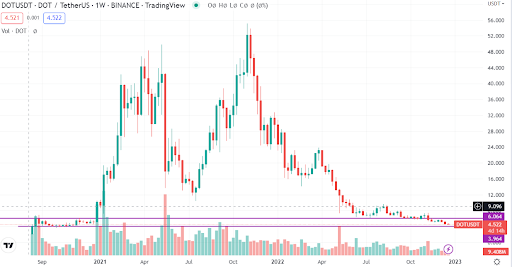您现在的位置是:Rocket Lab flies rocket with pre >>正文
Rocket Lab flies rocket with pre
上海品茶网 - 夜上海最新论坛社区 - 上海千花论坛38539人已围观
简介By subscribing, you agree to our Terms of Use and Policies You may unsubscribe at any time.Rocket La...
By subscribing, you agree to our Terms of Use and Policies You may unsubscribe at any time.
Rocket Lab launched an Electron rocket with a pre-flown Rutherford engine for the first time yesterday, August 23.

The company has experimented with a mid-air helicopter retrieval method, though it has settled on plucking boosters out of the ocean after a parachute-assisted splashdown.
The first flight using an engine recovered from one of these boosters is a big step in Rocket Lab's reusability plans.
Rocket Lab reuses a Rutherford engine for first time
An Electron rocket equipped with nine Rutherford engines launched an Earth-observation radar satellite for San Francisco-based Capella Space.
The rocket lifted off from Rocket Lab's New Zealand site at 19:45 EDT (11:45 local New Zealand time) on August 23. One of those nine engines had flown before during a previous Rocket Lab mission in May.
See Also Related- Rocket Lab says reusable Neutron will 'compete directly with Falcon 9'
- Rocket Lab launched and recovered a rocket mid-air in a world first
- Rocket Lab is self-funding a mission to search for alien life in the clouds of Venus
In a statement released before yesterday's mission, Rocket Lab founder and CEO Peter Beck said "this mission is a big step toward reusable Electron rockets."
"The engines we're bringing back from previous recovery missions are performing exceptionally well through requalification and acceptance testing, so we're excited to send one on its second trip to space as one of the final steps before reflying an entire first stage," he continued.
The mission, called "We Love the Nightlife", is a key step in Rocket Lab's reusability plans, which have been in the works for a few years now.
That's 400...uh…399 Rutherford engines launched to space!
— Rocket Lab (@RocketLab) August 24, 2023
The preflown Rutherford engine performed flawlessly today - a major step toward Electron reusability. pic.twitter.com/0EhalaVDP1
While SpaceX is known for performing its iconic automated booster landings after Falcon 9 and Falcon Heavy launches, Rocket Lab's Electron booster is too small to carry enough fuel for a powered landing. Instead, Rocket Lab performs parachute-assisted ocean splashdowns and then recovers the boosters using boats.
The "We Love the Nightlife" mission also performed a soft splashdown in the Pacific Ocean, making it the eighth time Rocket Lab has retrieved a booster using this method.
For yesterday's mission, the parachute was deployed roughly 8.5 minutes after launch, and the booster splashed down approximately 11 minutes after it took to the skies. Rocket Lab then successfully hauled the booster out of the ocean and back to shore.
Splash and grab: a guide pic.twitter.com/MjbHOnoYga
— Rocket Lab (@RocketLab) August 23, 2023
In May 2022, Rocket Lab became the first company to ever pluck a rocket out of the sky using a helicopter as it made a slow parachute-assisted descent.
The company had hoped to use this method so as to avoid seawater damage to its rocket parts. However, shortly after that mid-air recovery, the pilot had to drop the booster into the sea anyway, citing "different load characteristics" than were expected from tests.
Rocket Lab has since stated it may no longer pursue the helicopter recovery method due to the complex logistics involved.
Rocket Lab's next rocket to compete with SpaceX's Falcon 9
Yesterday's mission launched one of Capella Space's Acadia synthetic aperture radar (SAR) satellites into orbit.
The satellite was deployed into a 400-mile-high (640 kilometers) circular orbit roughly 57.5 minutes after launch. That satellite will be used for Earth observations using radar light.
"We Love the Nightlife" was Rocket Lab's 40th launch to date. The company also hopes to launch its next-generation Neutron rocket for the first time next year.
Speaking at a Bank of America event in London in March, Rocket Lab Chief Financial Officer Adam Spice said, "we are positioning Neutron to compete directly with [SpaceX's] Falcon 9."
Tags:
转载:欢迎各位朋友分享到网络,但转载请说明文章出处“上海品茶网 - 夜上海最新论坛社区 - 上海千花论坛”。http://www.jz08.com.cn/news/672535.html
相关文章
SIGMA Europe will go ahead 13th
Rocket Lab flies rocket with preSiGMA Group has announced that SiGMA Europe 2021 will run from 13 to 15 of April. Although the expo...
阅读更多
Multichain says it's ceasing operations, MULTI price falls
Rocket Lab flies rocket with preMultichain protocol says its forced to cease operations due to recent events.CEO Zhaojun and his sis...
阅读更多
Scientists take inspiration from squids to create alternating materials
Rocket Lab flies rocket with preBy subscribing, you agree to our Terms of Use and Policies You may unsubscribe at any time.Today’s m...
阅读更多